Canada 150: What is Canada really good at?
- Published

Recording artist Celine Dion is among the most famous Canadian musicians
Canada is a country with a relatively small population of just about 36 million people, but its citizens have still been busy inventing, innovating and entertaining.
In the run up to Canada Day, we asked BBC readers to tell us what they thought were some of the biggest contributions the country has made to the world.
Here are some of those suggestions.
1. Entertainment

Singer Shania Twain is one of most successful country music stars
The list of Canadian singers, actors, comedians and entertainers is extensive.
Readers flagged artists Shania Twain, Celine Dion, Drake, Leonard Cohen, Joni Mitchell, Neil Young, Arcade Fire, Alanis Morissette and Justin Bieber as just a handful of the musicians who have achieved global fame and swept awards shows for their work.
Many BBC readers are apparent fans of Canadian rock band Rush.
"For the arts, Canada produced no finer contribution than Rush, true artists whose eloquence, inventiveness and commitment to musicianship earned them generations of fiercely loyal fans, and inspired generations of musicians," Bill Mamer wrote from Chicago.
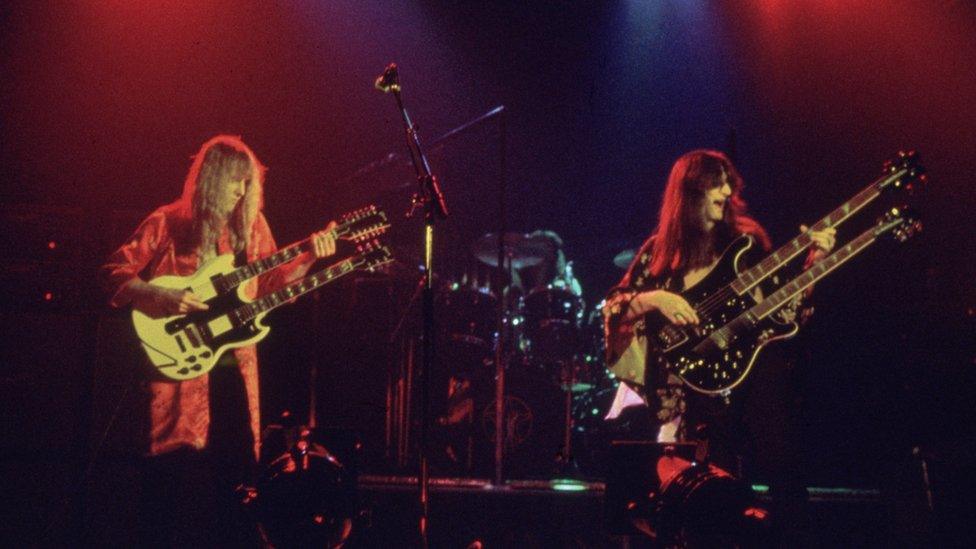
BBC readers showed a lot of love for Canadian rock band Rush
Canadians also got a nod for bringing the laughs.
"Jim Carrey, Mike Myers, Dan Aykroyd, Martin Short... shall I go on?" asked Donald Samulack, from Furlong, Pennsylvania.
The Naked Gun's Leslie Nielsen, who was born in Saskatchewan, and Back to the Future's Michael J Fox, from Alberta, also both notched up a number of mentions.
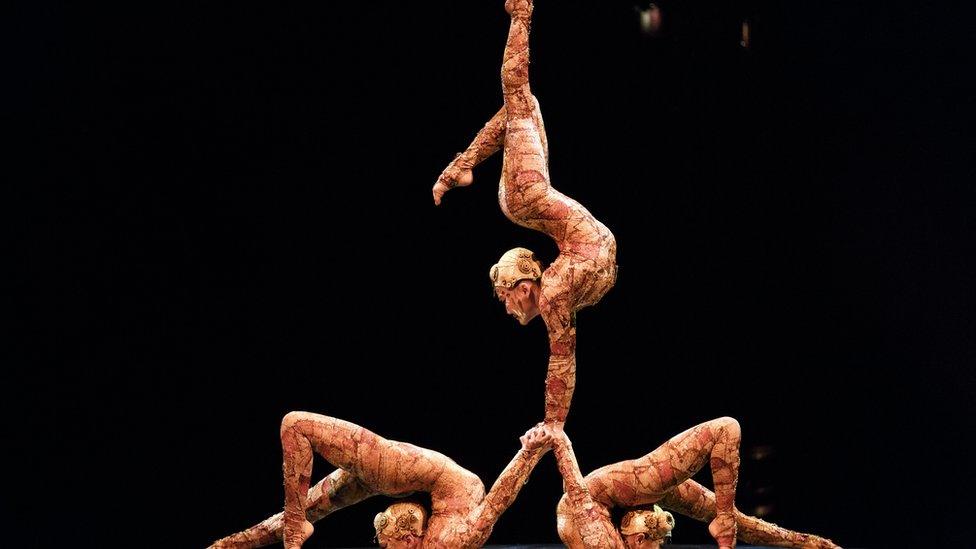
The Cirque du Soleil, created in Montreal, has wowed audiences worldwide
Maxime Tremblay pointed to Montreal's Cirque du Soleil as an unchallenged world leader in circus arts, with employees on five continents.
"French Canadian directors also continue their take over of the world in the cinema industry," Tremblay said, citing Dallas Buyer's Club director Jean-Marc Vallée and Arrival director Denis Villeneuve.
Quebec, along with Toronto and Vancouver, is also a video game hub. The province is the world's fifth-largest video game centre and its companies have generated blockbusters like the Assassin's Creed series.
2. Inventions

Canadian Lady Corset Company, founded in Montreal by Moses Nadler, launched the Wonderbra brand
From Imax to Instant replay and instant mashed potatoes, Canadians are the brains behind a mixed bag of innovations - from the handy to the transformative.
John Langan, from Havana, Florida, said no list would be complete without mention of James Gosling's work.
The Calgary-born computer scientist is the creator of the Java programming language - "currently the most important language in the world", says Langan.
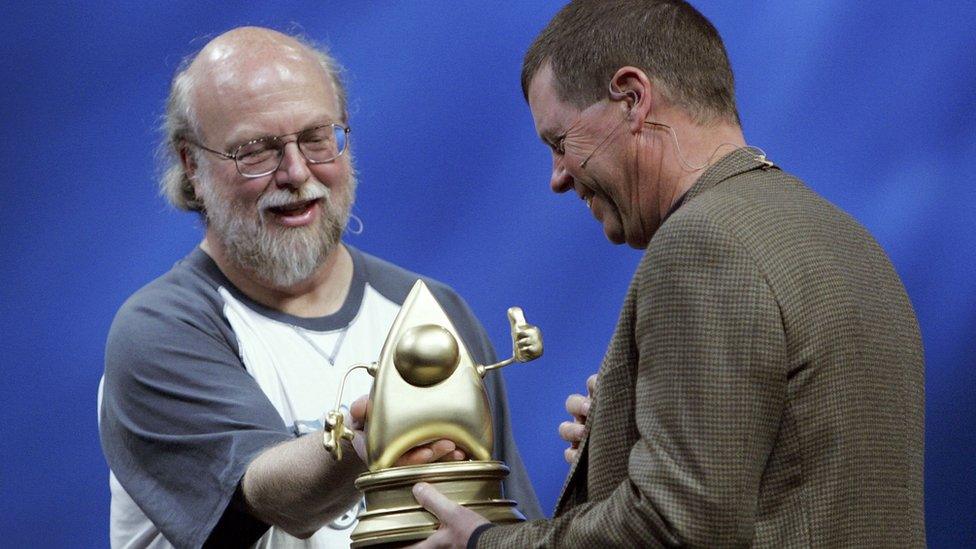
James Gosling, (left) invented the widely used Java programming language
A gift to parents everywhere, Olivia Poole, an American-Canadian mother of seven children herself, patented the bouncing baby exerciser known as the Jolly Jumper in 1954.
Some Canadian innovations fly under the radar, barely noticed because they are so common.
"Two great everyday items used by everyone from builders to DIYers are the caulk gun and the Robertson pattern screw head," says David Barrett, from Fernie, British Columbia. They were invented by Theodore Witt and Peter Lymburner Robertson, respectively.
In a similar vein Robert Walton, from Thorold, Ontario, flagged the paint roller as "a globally used tool".
A first basic version of the device was created by Torontonian Norman Breakey in the 1940s.
Ottawa's Laura Mei sent in a long list of Canadian innovations, which included Harry Wasylyk, Larry Hanson and Frank Plomp's invention in the 1950s of the polyethylene plastic bag- otherwise known as the garbage bag.
3. Medical breakthroughs
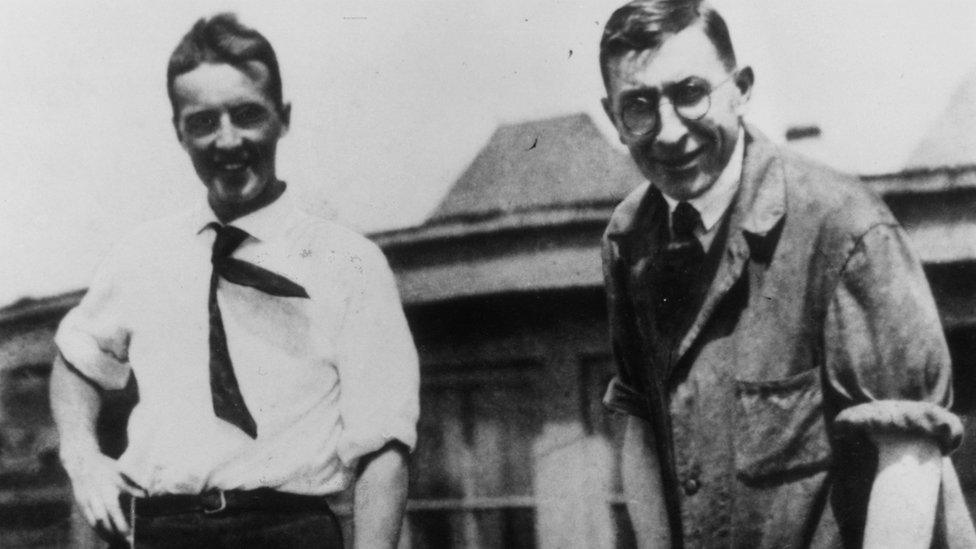
The Canadian discoverers of insulin, Charles Best and Frederick Banting (right)
Insulin was by far the most mentioned Canadian contribution by BBC readers, and for good reason.
Sir Frederick Grant Banting, born in Ontario in 1891, co-discovered the lifesaving therapy for diabetes in 1921 and went on to be awarded the Nobel Prize in Physiology or Medicine the following year.
The discovery of the hormone and its use in treating diabetes has saved millions of lives over the nearly 100 years since Banting and his colleagues' groundbreaking work.
Canadians James Till and Ernest McCulloch were the first to identify a stem cell.
In 1961, the pair discovered transplantable stem cells at the Ontario Cancer Institute in Toronto. Stem cells have tremendous potential in the medical field when it comes to the treatment of illnesses like Alzheimer's, macular degeneration, heart disease and stroke.
"This has to be the most significant medical discovery of our age, yet outside of the scientific community it goes unrecognised and unheralded," says David Halton, from Ottawa.
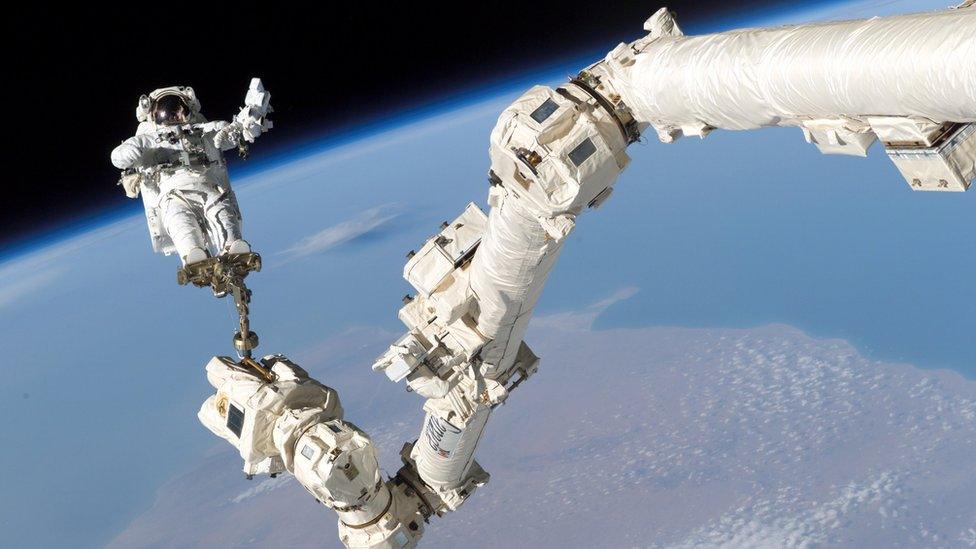
The Canadarm was a remote-controlled mechanical arm used on the International Space Station
4. Space exploration
On Canada Day, the Canadian Space Agency announced its two latest hires, newly minted astronauts Joshua Kutryk and Jennifer Sidey.
They are the latest in a list of well known Canadian spacemen and women, including Chris Hadfield, who charmed people worldwide with his rendition of David Bowie's Space Oddity from orbit while on the International Space Station (ISS).
Canada has also contributed much to space research and robotics.
"Our contribution to space exploration is huge. We designed and built the Canadarm which is one of the most important pieces in the space station," wrote Toronto's Richard Mootoo.
The Canadarm2 is a robotic arm that assembled the ISS in space. The robotic arm is currently used to move supplies, equipment and even astronauts.
It is the successor of the original Canadarm, which was used for three decades with Nasa's space shuttle programme.
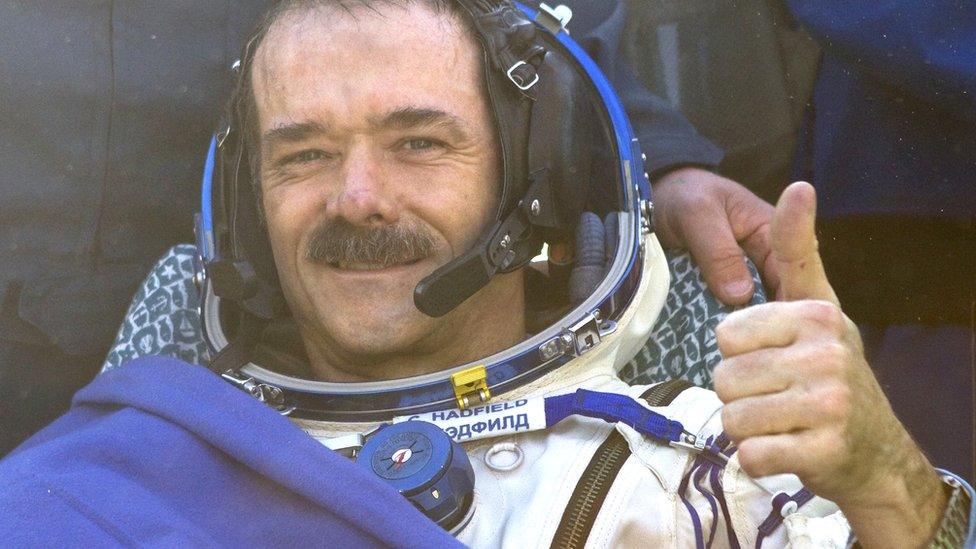
Canadian spaceman Chris Hadfield gives a thumb up
- Published22 June 2017

- Published13 August 2014

- Published3 July 2017
